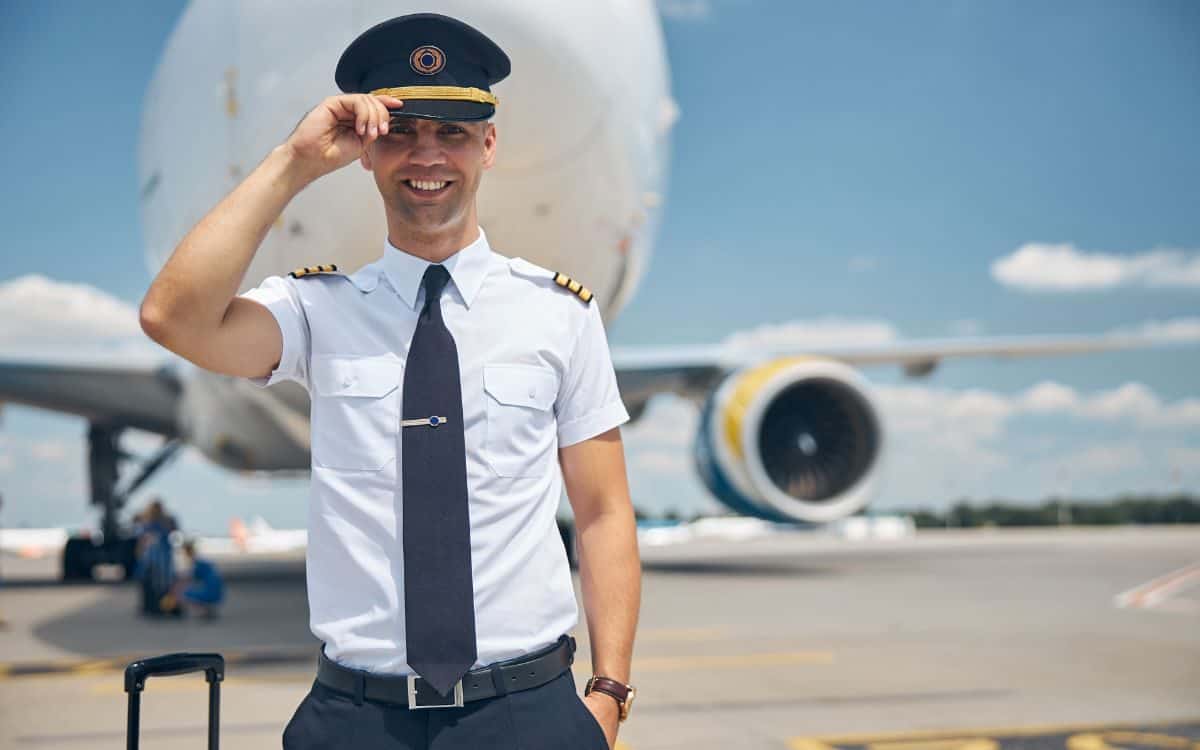For many pilots, flying an airplane isn’t only a job, it’s an opportunity to fulfill a dream. And when that flight path leads you to one of the biggest and most reputable cargo companies around the globe, the location is made more meaningful. The UPS pilot job is not just about taking you from point A to point B. It’s about carrying time-sensitive cargo, maintaining security and efficiency in the face of pressure and playing an essential part in the dynamism of international commerce.
If you’re awestruck with aviation and intrigued by the possibility of contributing to worldwide logistics, here’s a closer analysis of the process to become an UPS pilot, which includes qualifications, training programs, and the specifics of what it takes to become a pilot.

Image credit: flightschoolusa.com
UPS Pilots do more than just fly
UPS pilots, unlike commercial passenger pilots are responsible for transporting crucial goods such as documents and packages, across the national and international skies, often within tight deadlines. The pilots working in this industry are constantly on the move, whether they’re managing large quantities of cargo or navigating complicated meteorological systems. These pilots are also ambassadors of UPS. They represent the UPS brand and symbolize professionalism, reliability, technical expertise and commitment.
UPS pilots must handle everything from pre-flight planning and emergency protocols to communicating with the ground and air traffic control. It’s a role that demands not only high-quality flying, but also sharp decision-making skills, sharp situational awareness, as well as a fervent commitment to safety.
UPS Pilot Qualification Requirements Setting the bar high
UPS does not just give control to anyone. UPS pilot qualification requirements are among the most rigorous in the cargo aviation industry and with good reason.
At a minimum, applicants must have a bachelor’s level degree in aeronautics, aviation, or a related field. Additionally, they must have a valid FAA commercial pilot’s license that has both instrument and multi-engine ratings. Most UPS pilots have between 2000 and 4,000 hours of flight time that include experience in turbine-powered aircraft.
Medical fitness is also an essential role. Pilots must meet stringent FAA health standards, including great vision and ability to pass a comprehensive medical exam. The applicant should be an U.S. citizen or hold the appropriate work authorization, and must be within a specified age bracket of 23-65.
UPS places high value on the practical knowledge, experience gained from real-world situations, and professionalism. These qualifications are designed so that UPS will continue to be recognized as a reliable and safe company while maintaining the safety of their pilots.
UPS Pilot Programs: Preparing for the Real World
After meeting all the conditions, UPS offers extensive training for new pilots to help them prepare for the specific requirements of their aircraft and routes.
The pilots’ training begins with a ground class in which pilots are instructed on UPS-specific procedures, systems, and expectations. Then, simulator sessions are conducted that simulate real-world emergencies and flight conditions. After mastering the simulator and proficiency, pilots begin their Initial Operating Experience (IOE) and real flights, under the supervision and direction of the senior UPS pilots.
These programs go beyond the technical. They prepare pilots for operational efficiency, crew coordination, and real-time problem-solving–critical components of UPS’s global delivery infrastructure.
How to become a UPS Pilot by charting your flight path
If you’d like to become a UPS Pilot, it’s essential that you begin your career with a quality flight school. Flight schools such as Florida Flyers Flight Academy provide a solid foundation of knowledge of navigation and aeronautics along with safety guidelines.
In the meantime, you can enhance your capabilities by accruing flight hours on a variety aircrafts. Gaining experience in roles which emphasize safety, teamwork and time-sensitive tasks will make you a stronger candidate when applying to UPS.
Last Thoughts: A career Which Offers More than Paychecks
It’s not easy to become an UPS pilot. It requires commitment to technical proficiency, as well as the ability to perform under pressure. For those who can take on the challenge, it’s one of the most rewarding careers in aviation with competitive pay and world travel, security of employment, and the opportunity to play a crucial roles in keeping the global economy running smoothly. If you’ve always wanted to fly for a reason, the UPS cockpit might just be the ideal seat.

